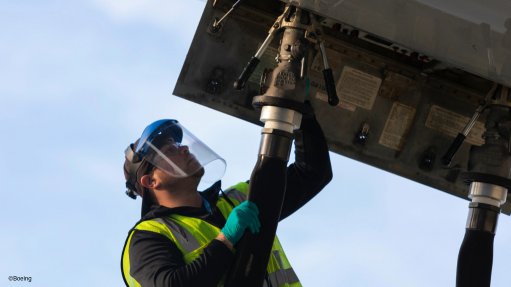Proposed protection of EU wines and spirits geographic indicators
Aday after the comment on the prohi- bition on the use of certain European Union (EU) geographical indications (GIs) relating to fruit, vegetables and cereals fresh or processed, cheeses, meat products, olive oil, fisheries product and beer, closed on March 6, the Wine and Spirit Board informed of the proposed protection of EU GIs for wines and spirits through a notice in the Government Gazette of March 7, and comment on this notice is due by April 6.
According to the notice, proposals have been made for the protection, in the territory of South Africa, of the EU GIs for wines and spirits as set out in the annexure to the Government Gazette. It is not only South Africa that published GI notices for comment – the February 22 edition of the official journal of the EU, an ‘Information Notice – Public Consultation: Geographical Indications from the Republic of South Africa’ invited comments on, among wine names, Honeybush and Rooibos. The deadline for the submission of comments is April 22.
APDP Replaces MIDP
The South African Revenue Service (Sars) informed on March 14 of the amendment of the rules of the Customs and Excise Act through the substitution of the DA 185 form (Application Form: Registration/Licensing of Customs and Excise Clients) and the DA 185.4A5 form (Registration Client Type 4A5 – Special Manufacturing Warehouse: APDP). The amendments to the forms were effected to change the references from Motor Industry Development Programme (MIDP) to Automotive Production and Development Programme (APDP).
According to the NAACAM website, the APDP replaced the MIDP on January 1, 2013. The APDP consists of four pillars that will drive the programme, namely an import duty, a vehicle assembly allowance, a production incentive and an automotive investment scheme.
Cheque Payment Reduction
Sars has published a proposed draft rule amendment to the Customs and Excise Act (insertion of Rule 120.12) for a reduction in the limit on the amount for which cheques may be made out to Sars – from R100 000 to R50 000. Comment is due by March 20. The intention of the amendment is to be effective from April 1. The amendment will entail the insertion, after Rule 120.11, of the following heading and rule: “Payment by cheque 120.12 (a) No payment by cheque in excess of R50 000, including any payment relating to value-added tax (Vat) on imported goods as contemplated in the Value-Added Tax Act, 1991 (Act No. 89 of 1991), unless the commissioner, having regard to the circumstances, directs otherwise. (b) For the purposes of paragraph (a), the total payments by cheque by any person on any day may not exceed R50 000 for any number of payments required to be made on that day. (c) No payments may be made by cheque if any person has, in the preceding three years, made two payments by cheque to Sars that were ‘referred to drawer’.”
Locus Standi Court Ruling
The High Court of South Africa, Pretoria, ruled on March 13 in favour of Sars in an application made by DKR Auto for an order setting aside the seizure on November 18, 2011, by the commissioner of Sars of a Lamborghini Murcielago. The court ruled that DKR Auto could not show locus standi and thus dismissed the application.
Vat on Imported Potatoes
A Vat Draft Binding General Ruling on the treatment of the supply and importation of various types of frozen potato products was published by Sars on March 12. The ruling deals with zero-rated supplies and standard-rated supplies, specifying the criteria of classification. Comment is due by May 15.
Imported frozen potato chips are presently subject to antidumping measures, with the safeguard measure being suspended.
The supply of the following frozen potato products is subject to Vat at the zero rate under section 11(1)(j), read with Item 12:
- Potato products that are blanched in hot water, steam or oil for the purpose of preserving the product in its natural state. For purposes of this BGR, blanching of potato products in order to stop the action of enzymes that can cause loss of flavour, colour and texture, make the potato product safer for the end-user from a microbiological aspect, brighten the colour and help to prevent the loss of the natural sugars and vitamins present in the potato product, soften the potato products and make them easier to pack or prepare the potato product for freezing, is regarded as being performed for the purpose of preserving the product in its natural state.
- Potato products that have been treated with a preservative to prevent the potato product from naturally darkening. In this regard, Section 11(3) requires a vendor to obtain and retain documentary proof substantiating the vendor’s entitlement to apply the zero rate.
The supply of the following frozen potato products is specifically excluded from Item 12 and is subject to Vat at the rate of 14% under Section 7(1)(a), irrespective of whether such products have also been treated in the same manner as the products listed in 2.1: frozen potato products that have been treated with an additive for the purpose of adding colour, such as to darken the product, or adding flavour, such as sweeteners (for example, glucose and dextrose) and salt; potato products that are coated with a layer of batter in order to increase the crispiness, before being blanched in oil; and potato products that are produced by forming potatoes into shapes, such as hash browns and röstis.
Protection of Crucial Infrastructure Draft Bill
The Government Gazette of March 3 included a notice of the publication of the Protection of Crucial Infrastructure Bill for public comment, which is due by April 1.
The object of the Bill is to ensure the adequate protection of crucial infrastructure within South Africa, the creation of procedures for the determination and protection of crucial infrastructure that is open and transparent and accountable administration of crucial infrastructure, while ensuring that the security of South Africa is maintained.
Comments
Announcements
What's On
Subscribe to improve your user experience...
Option 1 (equivalent of R125 a month):
Receive a weekly copy of Creamer Media's Engineering News & Mining Weekly magazine
(print copy for those in South Africa and e-magazine for those outside of South Africa)
Receive daily email newsletters
Access to full search results
Access archive of magazine back copies
Access to Projects in Progress
Access to ONE Research Report of your choice in PDF format
Option 2 (equivalent of R375 a month):
All benefits from Option 1
PLUS
Access to Creamer Media's Research Channel Africa for ALL Research Reports, in PDF format, on various industrial and mining sectors
including Electricity; Water; Energy Transition; Hydrogen; Roads, Rail and Ports; Coal; Gold; Platinum; Battery Metals; etc.
Already a subscriber?
Forgotten your password?
Receive weekly copy of Creamer Media's Engineering News & Mining Weekly magazine (print copy for those in South Africa and e-magazine for those outside of South Africa)
➕
Recieve daily email newsletters
➕
Access to full search results
➕
Access archive of magazine back copies
➕
Access to Projects in Progress
➕
Access to ONE Research Report of your choice in PDF format
RESEARCH CHANNEL AFRICA
R4500 (equivalent of R375 a month)
SUBSCRIBEAll benefits from Option 1
➕
Access to Creamer Media's Research Channel Africa for ALL Research Reports on various industrial and mining sectors, in PDF format, including on:
Electricity
➕
Water
➕
Energy Transition
➕
Hydrogen
➕
Roads, Rail and Ports
➕
Coal
➕
Gold
➕
Platinum
➕
Battery Metals
➕
etc.
Receive all benefits from Option 1 or Option 2 delivered to numerous people at your company
➕
Multiple User names and Passwords for simultaneous log-ins
➕
Intranet integration access to all in your organisation


















